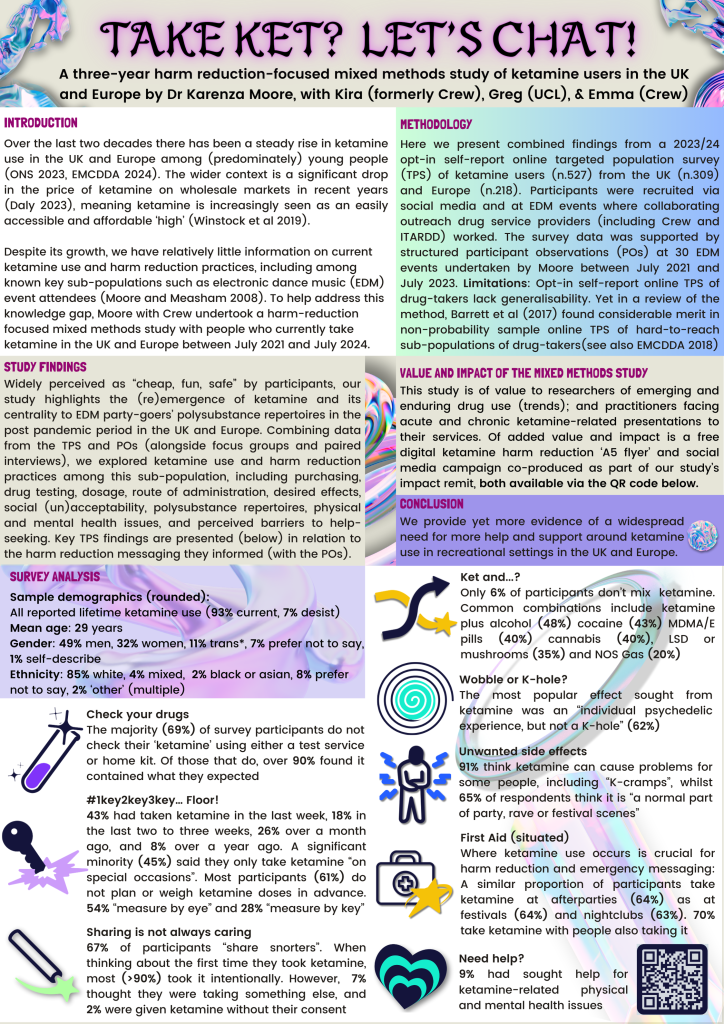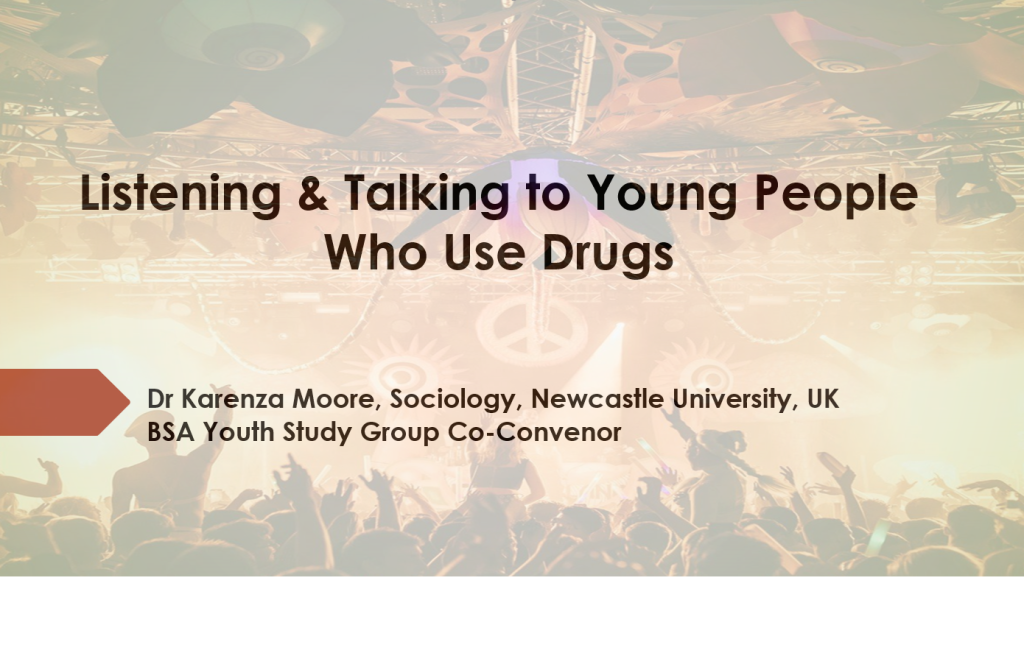European Society for Social Drug Research (ESSD) Conference. Manchester 2024 (poster for launch)

Street Drugs Discussions (Part 1) on Ketamine
Dr Karenza Moore discusses her research on the trends and context around young people’s use of ketamine across the dance and techno music scenes.YouTube link
Reflections on Researching Youth Researching Youth took place in Summer 2022 and was organised by co-convenors of the British Educational Research Association (BERA) special interest group on Youth Studies and Informal Education, in collaboration with the British Sociological Association (BSA)’s Youth Study Group and the Political Studies Association (PSA)’s Young People’s Politics Specialist Group. Whilst we cannot claim there is […]
Our British Sociological Association Lifecourse Stream Plenary 2021 in ‘Intersectional Perspectives on Youth Research: promises, challenges and possibilities’
Please take a look at our LIFECOURSE Stream Plenary from the (virtual) BSA Annual Conference: Remaking the Future, 13-15 April 2021. https://www.youtube.com/watch?v=9RywzgSAnhw
Researching Youth – Methods Seminar Series
Does your research involve working with young people? Are you interested in youth-led, creative or culturally-responsive methodologies? The British Educational Research Association (BERA) special interest group for Youth Studies & Informal Education, is working in collaboration with the British Sociological Association (BSA)’s Youth Study Group and the Political Studies Association (PSA)’s Young People’s Politics Specialist […]
Listening & Talking to Young People Who Use Drugs

Lets listen to young people when they talk about drugs, whilst exploring creative ways in which to incorporate their voices into drug debates, and in drug policy-making and future drug policy development
A Deep Dive into Afterparties, with Dr Lisa Williams and Dr Giulia Zampini, hosted by Dr James Morgan, and supported by Drug Science, March 2022
Please find the flyer, video and slides for my “Where’s the Afters?” presentation for “A Deep Dive into Afterparties” March 2022 Watch our deep dive into Afterparties here
Safer Partying: Building evidence-based public safety and drug harm reduction policies and practices

The Safer Partying survey is now closed Safer Partying Ethics Documents Brief project description Exciting news about my research on drug use at parties at home! Recently I received funding from the QR Policy Fund for a brief policy-orientated research project on encouraging and supporting safer partying among young adults. As you will know I […]
Chatting to Freddie at Vent: The Mental Health Podcast
So during the pandemic I had the chance to chat to some fantastic people who work to support young people’s mental health. Here is Freddie and I having a chat about all things drugs, clubs and mental health. Soundcloud Apple podcasts Spotify Enjoy!
The Sociology Show
So the pandemic brought lots of online activity around my research. This included a fab chat about undertaking illicit drug research through a Sociological lens, with the fantastic Matthew Wilkin of The Sociology Show. Enjoy! The Sociology Show with Dr Karenza Moore